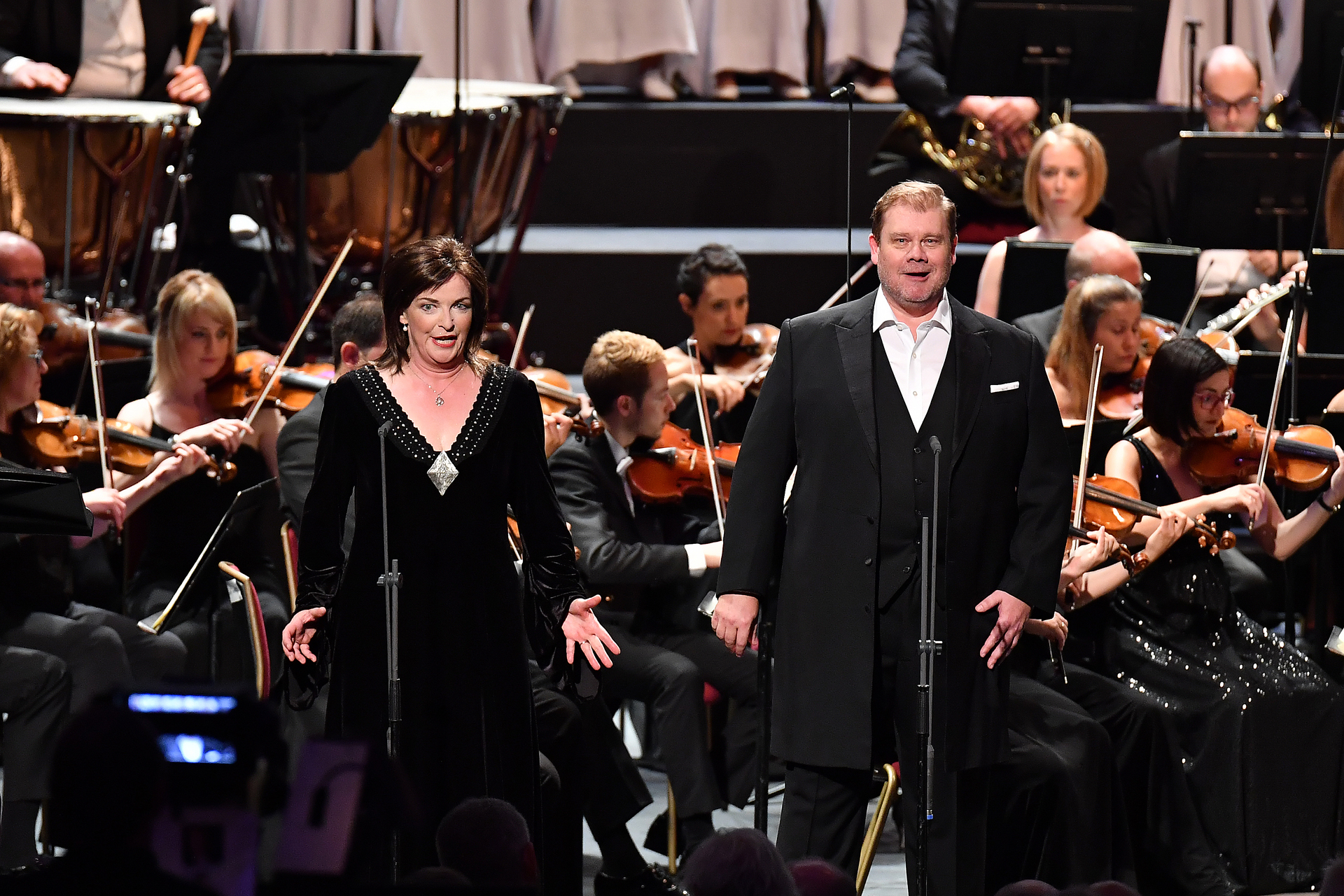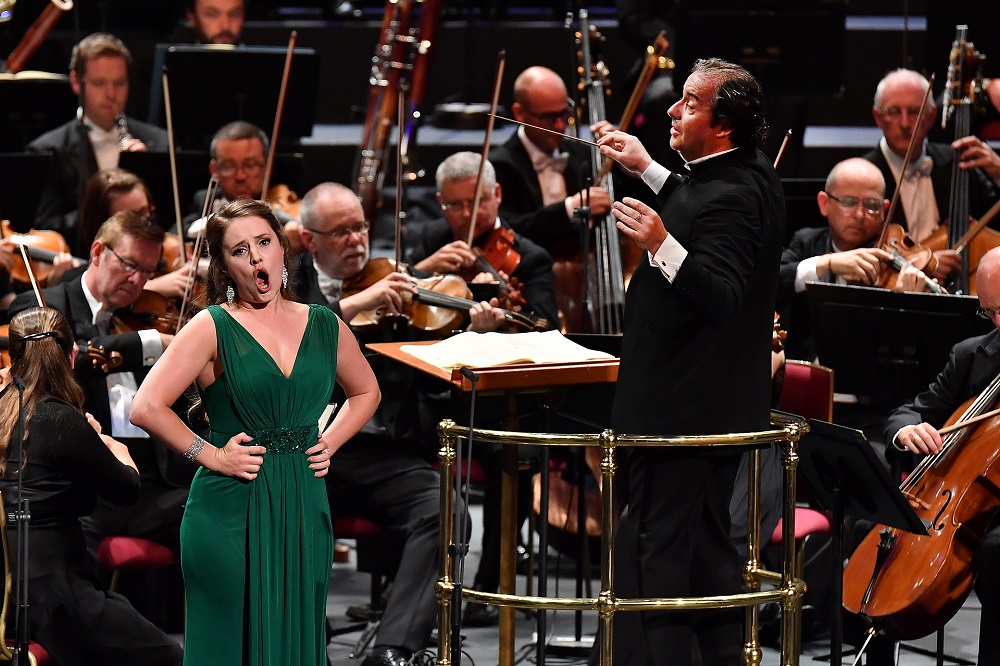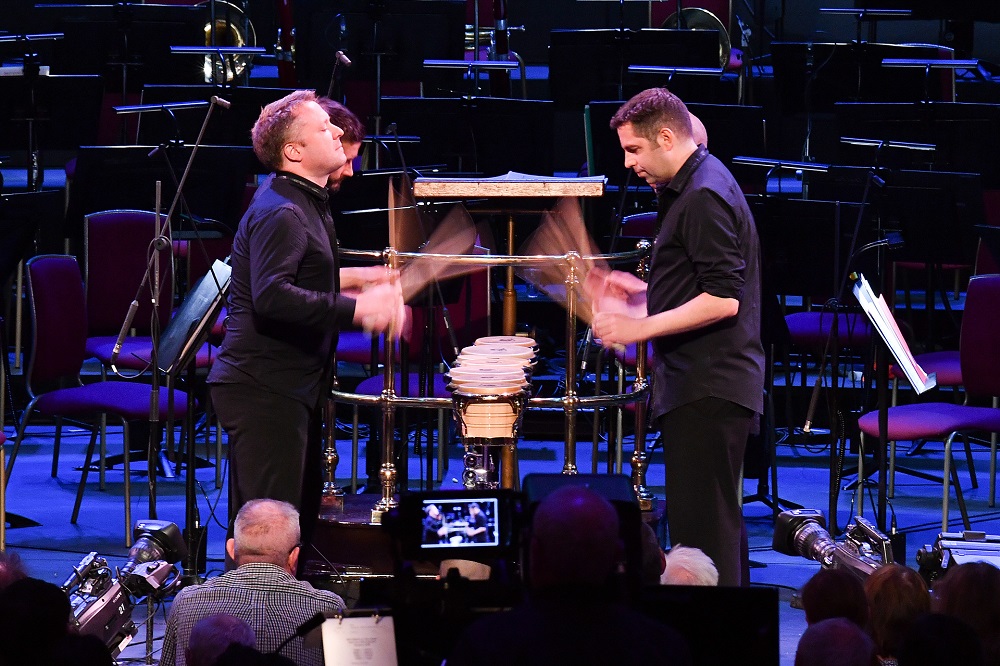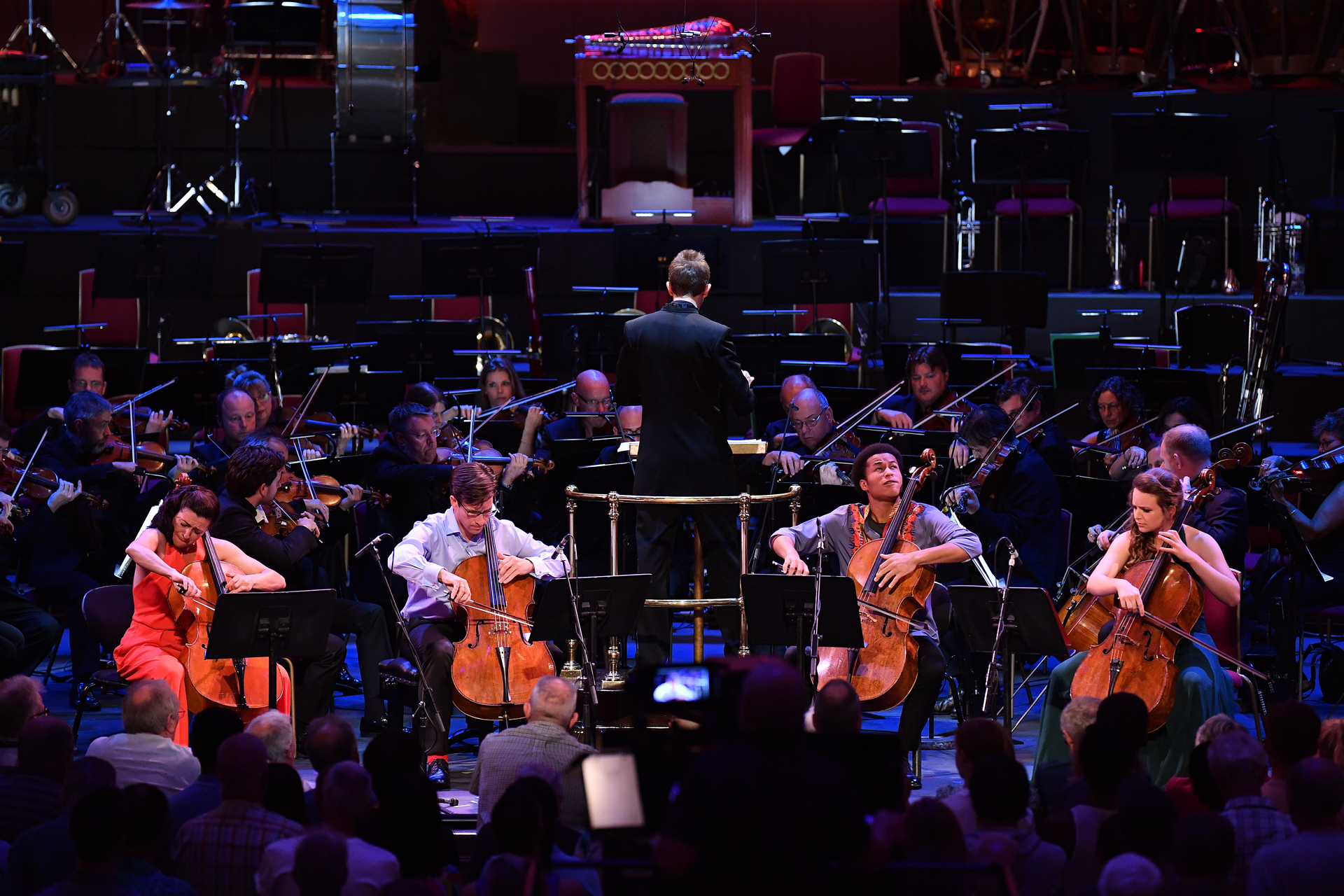Prom 9 review: Fidelio, BBCPO, Mena - classy prison drama rarely blazes
Lively conducting and difficult roles well taken, but the supporting cast shines brightest
What a pity Beethoven never composed an appendage to Fidelio called The Sorrows of Young Marzelline. One crucial moment apart, the music he gives to his second soprano in his only opera isn't his best, but Louise Alder so lived the role of the gaoler's daughter in love with a woman disguised as a man that everything else felt rather less intense. It's only fair to say that there were other singers facing bigger challenges very stylishly, for the most part, but neither they nor the BBC Philharmonic under its chief conductor Juanjo Menja made us feel as though their lives depended on the outcome. And that ultimate lack of blazing commitment, in what should be the most incandescent of prison dramas, sold it all a bit short.
True, this was an unashamed concert-performance Prom with no directorial supervision, principals delivering score-free – with one exception, James Creswell, a more than adequate late replacement for Brindley Sherratt as gaoler Rocco – in front of the orchestra, with co-ordination not always the tightest. This, Beethoven's much more celebrated revision of the original Leonore swapping drama for a pageant-finale, worked best in that oratorio-like final scene – though like much else it was bright and pleasant rather than shattering or deeply moving. It was hard to come from the Chamber Orchestra of Europe under Haitink, projecting every phrase of Mozart and Schumann into the Albert Hall space, and be brought back down to earth with the more usual situation of fuzzy strings lacking ideal bite. No doubt the answer would be to stand in the Arena, an occasional option, but no way was this playing on the same level. And the horns were having a bad night.

Villainous prison governor Pizarro can only work at a level of testosterone-driven edginess; Detlef Roth conveyed nothing more than a petulant bank-manager, despite a couple of energetic footstamps. Creswell's subordinate could have eaten him for breakfast; as they sang alongside each other, one got the feeling of the same mésalliance as when King Philip in Verdi's Don Carlos has more vocal power than the only one supposedly lording it over him, the Grand Inquisitor. We could have done with more colours and force from the Orfeón Donostiarra, Spain's finest choral society, playing their compatriots albeit singing in German, but emphatically not the essential professional opera chorus. Better, perhaps, to have assembled voices from the London music colleges.

Amplifying the (minimal) spoken dialogue meant a plunge in levels for the music. Cultivated, mostly lively orchestral playing just needed more heft, despite excellent work from timpanist Paul Turner. It didn't tell the story by itself, and given that the Proms organisers still won't provide supertitle screens around the hall – it can be done – more of the performers needed to work harder to carry the narrative and compel focus from those in the audience with their heads in the programme.
- Listen to this Prom for the next month on the BBC iPlayer
- Stop press: Louise Alder replaces an indisposed Andrei Bondarenko for a Wigmore Hall recital with Gary Matthewman tonight (22 July)
- Read more opera reviews on theartsdesk
Next page: watch Louise Alder sing 'No word from Tom' from Stravinsky's The Rake's Progress at the BBC Cardiff Singer of the World Competition


